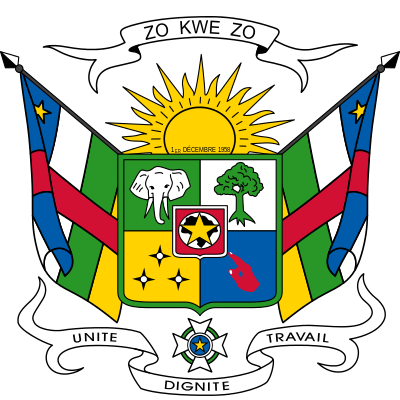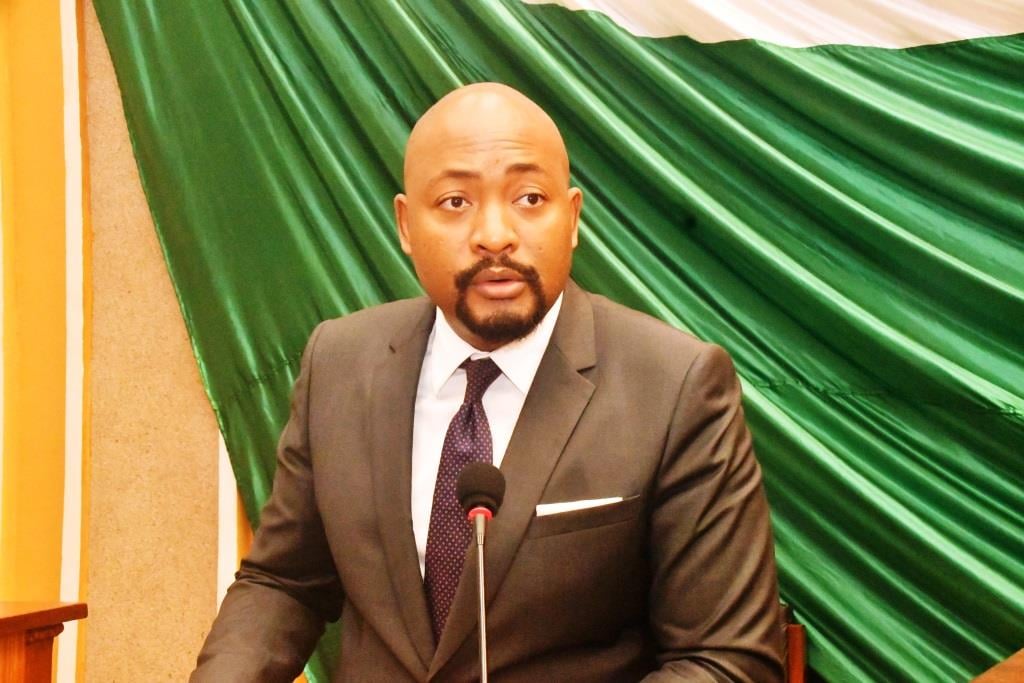
Face à une situation économique volatile et aux besoins de réduction des charges de l’Etat, aux fins de rendre les dépenses publiques efficaces et efficientes, le ministre chargé des finances et du budget, Hervé Ndoba a fait adopter, le jeudi, 26 août, par l’Assemblée nationale, les projets de lois autorisant le gouvernement à abroger les textes de création des établissements publics, jugés budgétivores , inefficaces et dont l’existence n’a plus de justification économique.
Le gouvernement centrafricain a entrepris de supprimer certains établissements, dans le cadre des réformes des finances publiques, afin de réaliser des économies conséquentes pour financer des projets structurants de développement. Ces établissements publics qualifiés de budgétivores, et dont la plupart ont été créés dans l’optique de répondre à certains besoins de l’époque, fonctionnaient en toute autonomie administrative et financière à travers une gestion opaque, frisant ainsi de la gabegie. Car, elles font entrer des sommes considérables qui n’atterrissent pas le plus souvent, dans les caisses du Trésor public, mais plutôt sont utilisées pour des dépenses liées à leur fonctionnement ou au paiement des salaires faramineux.
Le résultat des audits commis, ont aussi prouvé que les ressources prélevées par ces établissements ne sont pas utilisées à bon escient, en d’autres termes, elles ne sont point utilisées dans le but pour lequel ils ont été créés. « elles ne servent qu’à la prise en charge des dépenses de fonctionnement courant ; le salaire absorbe à lui seul, entre 80 et 90% des ressources réalisées, ce qui ne donne pas une justification à tout point de vue économique et est contraire à un objectif d’équité ou de développement du secteur économique », a explicité la commission économie, finances et plan de l’institution législative centrafricaine.
Raison pour laquelle, l’exécutif a initié ces projets de lois en vue de procéder à la dissolution des établissements publics qui sont au nombre de six, à savoir entre autres, le Compte d’Affectation Spécial du Développement Touristique et Artisanal (CAS-DT), le Fonds de Développement Agro-pastoral (FDAP), le Fonds de Développement Minier, le Fonds National de l’Environnement (FNE), l’Agence de Régularisation du Secteur de l’Electricité en Centrafrique (ARSEC), et l’Agence de Stabilisation et de la Régulation des Prix des Produits Pétroliers (ASRP).
Il importe de mentionner que le débat contradictoire qui a lieu dans l’hémicycle de l’Assemblée nationale, a offert l’opportunité au ministre chargé des finances et du budget, de dissiper un certain nombre d’incompréhensions au sujet de la suppression de ces entités, gagnées par une léthargie qui ne dit pas son nom. Ce spécialiste d’ingénierie économique et financière a bien voulu mettre au service de la nation, son expertise et son expérience, en démontrant comment à l’échelle de l’Etat, l’on peut réaliser une épargne en consentant des efforts dans le sens de la discipline budgétaire et financière, en vue d’un investissement productif. L’intervention de l’argentier national a pris les allures d’une véritable pédagogie financière, utile à la gestion efficiente et efficace de la res communis.
A la faveur des éléments de réponses convaincantes que le ministre chargé des finances et budget a fournies aux élus du peuple, l’Assemblée nationale a adopté à une majorité écrasante, les projets de lois portant abrogation des textes de création de six établissements publics.
Ci-dessous, la version anglaise
Below, is the English translation
THE NATIONAL ASSEMBLY ADOPTS GOVERNMENT BILLS ON THE ABOLITION OF SIX PUBLIC AGENCIES, FUNDS AND OFFICES
Faced with a volatile economic situation and the need to reduce state expenses in order to make public spending effective and efficient, the minister of finance and budget, Hervé Ndoba, on Thursday, August 26, had the National Assembly adopt bills authorizing the government to repeal the texts creating public establishments, which are considered to be budgetary, inefficient and no longer economically justified.
The Central African government has undertaken to abolish certain establishments, as part of the public finance reforms, in order to make substantial savings to finance structural development projects. These public establishments, described as budgetary, and most of which were created in order to meet certain needs at the time, operated with complete administrative and financial autonomy through opaque management, bordering on mismanagement. For, they bring in considerable sums of money that most often do not end up in the coffers of the public treasury, but rather are used for expenses related to their operation or the payment of astronomical salaries.
The results of the audits carried out have also shown that the resources collected by these establishments are not used for their intended purpose, in other words, they are not used for the purpose for which they were created. "They are only used to cover current operating expenses; the salary alone absorbs between 80 and 90% of the resources made, which does not justify any economic point of view and is contrary to an objective of equity or development of the economic sector," explained the economic, financial and planning commission of the Central African legislative institution.
For this reason, the government has initiated these bills to dissolve the six public institutions, including the Special Allocation Account for Tourism and Handicraft Development, the Agro-Pastoral Development Fund, the Mining Development Fund, the National Environment Fund, the Agency for the Regulation of the Electricity Sector in the Central African Republic, and the Agency for the Stabilization and Regulation of the Price of Petroleum Products.
It is important to mention that the contradictory debate that is taking place in the hemicycle of the National Assembly, offered the opportunity to the minister of finance and budget, to dispel a number of misunderstandings about the abolition of these entities won by a lethargy that does not say its name. This specialist in economic and financial engineering was willing to put at the service of the nation, his expertise and experience, by demonstrating how at the State level, one can achieve savings by making efforts in the direction of budgetary and financial discipline, for a productive investment. The intervention of the national treasurer took the form of a real financial pedagogy, useful for the efficient and effective management of the res communis.
Thanks to the convincing answers provided by the minister in charge of finance and budget to the elected representatives of the people, the National Assembly adopted by an overwhelming majority, the draft laws repealing the texts of creation of six public institutions.






